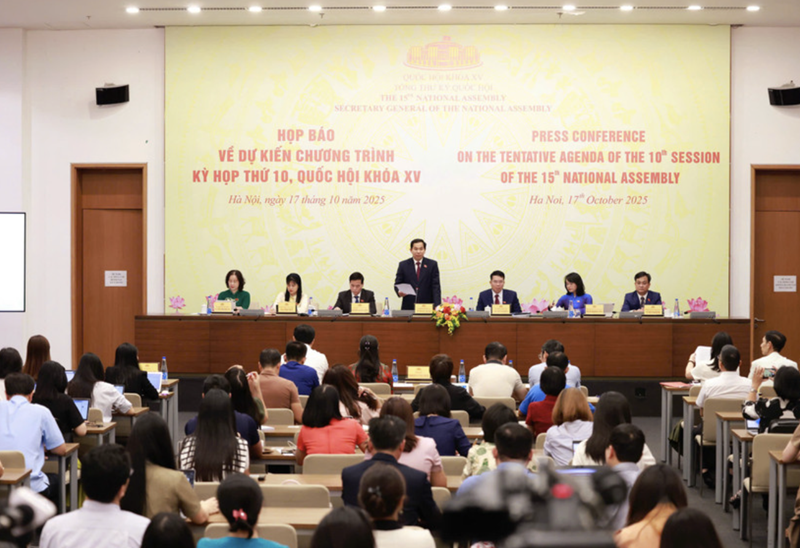Hien said the legislature will decide on 66 items and groups of items, including 49 draft laws, 4 legislative resolutions, and 13 groups of issues covering socio-economic development, state budget, oversight, and other key matters.
    |
 |
|
At the press conference (Photo: quochoi.vn) |
He noted an ongoing shift to a digital legislature, with artificial intelligence increasingly integrated into its operations. Since September 15, the N.A. Office has gone fully paperless, managing all administrative and professional tasks via electronic platforms. The legislature has led Vietnam’s “Digital Literacy for All” movement, with lawmakers harnessing AI for their work.
Procedural changes mark this session, Hien noted. Unlike past sessions, there will be no mid-session break, and live questioning in the assembly hall has been replaced with pre-submitted questions to relevant officials. Thematic issues will be grouped for more focused, effective discussions.
According to him, this new approach fosters closer collaboration between drafting and verification bodies, enabling lawmakers to spot overlaps and inconsistencies in draft laws, ultimately improving the quality of legal documents.
Preparations for the session are largely complete, ensuring optimal outcomes, he added.
On the decision to forgo revising the Land Law in favor of a resolution to tackle issues, particularly in land valuation, Pham Thi Hong Yen, a full-time member of the NA Economic and Financial Committee, explained that the 2024 Land Law, effective since August 1, requires a thorough assessment of current challenges before amendments are considered.
Future revisions must create a holistic, fundamental and cohesive legal framework balancing the interests of the state, citizens, and businesses, Yen said, noting that comprehensive changes to the Land Law will be studied further.
Ta Thi Yen, deputy head of the N.A. Committee for Deputy Affairs, said the legislature will decide on several personnel matters within its authority, including the election, approval, or dismissal of key state leadership positions. She stressed that this routine process ensures continuity, stability, and efficiency in state operations in the new situation.
Source: VNA